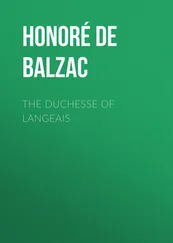Dino Dorothée - Memoirs of the Duchesse De Dino (Afterwards Duchesse de Talleyrand et de Sagan), 1841-1850
Здесь есть возможность читать онлайн «Dino Dorothée - Memoirs of the Duchesse De Dino (Afterwards Duchesse de Talleyrand et de Sagan), 1841-1850» — ознакомительный отрывок электронной книги совершенно бесплатно, а после прочтения отрывка купить полную версию. В некоторых случаях можно слушать аудио, скачать через торрент в формате fb2 и присутствует краткое содержание. Жанр: foreign_antique, foreign_prose, на английском языке. Описание произведения, (предисловие) а так же отзывы посетителей доступны на портале библиотеки ЛибКат.
- Название:Memoirs of the Duchesse De Dino (Afterwards Duchesse de Talleyrand et de Sagan), 1841-1850
- Автор:
- Жанр:
- Год:неизвестен
- ISBN:нет данных
- Рейтинг книги:4 / 5. Голосов: 1
-
Избранное:Добавить в избранное
- Отзывы:
-
Ваша оценка:
- 80
- 1
- 2
- 3
- 4
- 5
Memoirs of the Duchesse De Dino (Afterwards Duchesse de Talleyrand et de Sagan), 1841-1850: краткое содержание, описание и аннотация
Предлагаем к чтению аннотацию, описание, краткое содержание или предисловие (зависит от того, что написал сам автор книги «Memoirs of the Duchesse De Dino (Afterwards Duchesse de Talleyrand et de Sagan), 1841-1850»). Если вы не нашли необходимую информацию о книге — напишите в комментариях, мы постараемся отыскать её.
Memoirs of the Duchesse De Dino (Afterwards Duchesse de Talleyrand et de Sagan), 1841-1850 — читать онлайн ознакомительный отрывок
Ниже представлен текст книги, разбитый по страницам. Система сохранения места последней прочитанной страницы, позволяет с удобством читать онлайн бесплатно книгу «Memoirs of the Duchesse De Dino (Afterwards Duchesse de Talleyrand et de Sagan), 1841-1850», без необходимости каждый раз заново искать на чём Вы остановились. Поставьте закладку, и сможете в любой момент перейти на страницу, на которой закончили чтение.
Интервал:
Закладка:
Vienna, June 8, 1841. – I had a most unpleasant journey from Prague hither. The weather had broken: it was cold, stormy, and damp; I spent the first night in my carriage and the second in a small inn, eventually arriving here at three o'clock this afternoon. I am staying in rooms which my sisters had engaged for me. I have already seen my quondam brother-in-law, the Count of Schulenburg, whom I shall make my major-domo, for which position he is exactly suited.
It is strange to be once more at Vienna. 29 29 The author had accompanied the Prince de Talleyrand to Vienna for the Congress of 1815, and the Prince refers to the incident in his Memoirs as follows: "I also thought that it was necessary to destroy the hostile prejudice with which imperial France had inspired the high and influential society of Vienna; for this purpose the French Embassy must be made a social centre. I therefore asked my niece, the Comtesse Edmond de Périgord, to accompany me and do the honours of my house. Her readiness and tact caused general satisfaction, and were highly useful to me." (Vol. II. p. 208.)
The whole of my destiny is contained in the name of this city, and here my life of devotion to M. de Talleyrand began and that strange and unusual association was formed which could only be broken by death, though broken is the wrong word; I should have said interrupted, for I have constantly felt during the past year that we shall meet elsewhere. At Vienna I entered upon that troublesome and attractive life of publicity which rather wearies than flatters me. I found much amusement here and many occasions for tears: my life became complicated and I was involved in the storms which have so long roared about me. Of the many who turned my head and provided me with amusement and excitement, none remain. Old and young, men and women, all have disappeared; indeed the whole world has undergone two changes since that time. My poor sister with whom I was to live, is also dead. Prince Metternich alone remains; he has sent me very pleasant messages and I shall probably see him to-morrow.
I doubt if I shall sleep to-night; I am greatly disturbed by the ghosts which haunt these scenes and which all speak with one voice of the vanity of the things of this world.
Vienna, June 10, 1841. – The choice of M. de Flahaut as French ambassador here, which recent news from Paris represents as increasingly possible, has aroused general dissatisfaction. Madame de Flahaut wrote to Lord Beauvale, the English ambassador, to try and disarm this opposition and said that people need not be afraid of her husband's appointment as she would not be able to follow him for a long time. This is certainly an unusual method of seeking popularity.
I went back to my house yesterday at two o'clock in the afternoon to await Prince Metternich who had sent word to say that he would come at that time. He kept his appointment and I did not find him greatly changed. It is a real pleasure to see him again and to find him in possession of all his freshness of mind, his power of judgment, his wide knowledge of men and affairs and his genial kindness to myself which has never varied. He stayed for two hours upon which I look back with great pleasure. As a rule he never pays personal visits. His wife sent to say that she would have come if she had not been afraid of wearying me, as she was extremely anxious to make my acquaintance. No one could have been kinder; I am dining with them to-day in their suburban villa where they are spending the spring.
I hear that Schlegel, the platonic admirer of Madame de Staël, is at Berlin to help in the publication of the works of Frederick the Great. M. Thiers was expected there and I am glad to have missed him. It has been decided to receive him as a member of the Academy and as a historian, but not as a politician and certainly not as a statesman. Meanwhile M. Guizot seems to be taking walks with the Princess de Lieven at nine o'clock in the morning in the gardens of the Tuileries, which is their mode of observing nature.
I found that Marshal Marmont had called when I came home yesterday evening. I had seen him from a distance at the opera.
Vienna, June 11, 1841. – Yesterday I dined with Prince Metternich. He has a pretty house like a small edition of Neuilly, and has collected many artistic objects which are tastefully interspersed with fine flowers and many other things without any appearance of overcrowding. There were at dinner, apart from the master and mistress of the house, only the unmarried daughter of his first marriage, my sisters, the Louis Saint-Aulaire, husband and wife, and the two Herren von Hügel, who are constant visitors at the house. Princess Metternich is very pretty, quite natural and attractive, an original character; and as she was kind enough to be anxious to please me, she naturally succeeded without difficulty. After dinner I called upon some members of the Hohenzollern family who are here, and finally went to tea with an old friend of my sisters'. There were a dozen people present who were all unknown to me apart from Prince Windisch-Graetz, a Count O'Donnel, a survivor of the Hotel de Ligne, and Marshal Marmont, who did not seem to have changed.
Vienna, June 12, 1841. – Yesterday morning I went with my sisters to call upon their great friend Princess Amelia of Sweden, at whose house I met her sister, the Grand Duchess of Oldenberg; she is going to Munich with her husband to see the Queen of Greece, who has come there in the course of a tour. I then called upon a Polish lady whom I had known long ago at the house of Princess Tyszkiewicz at Paris, whose niece she was. She was then called Madame Sobánska and enjoyed a certain reputation. I found her considerably changed; she is a person of wit and some beauty, but is rather spiteful and a gossip – a character to be feared. I had hardly returned from these calls when Marshal Marmont came in. He talked a great deal of his anxiety to return to France, but I think pecuniary rather than political reasons are the hindrance. He spends his life here at the French Embassy.
Vienna, June 14, 1841. – Yesterday I went to hear mass at the Church of the Capuchins, with the intention of afterwards seeing Father Francis, who was with my sister in her last moments. I was anxious to learn from him some details on the subject of religion which my other sisters could not give me. I found him a pleasant and clever man, who seemed to conceal beneath his mendicant friar's dress a considerable knowledge of the world and a considerable power of making his way in it. He is said to be the director here of all whose consciences are divided between God and the world, a difficult task in which success is not easy.
Vienna, June 15, 1841. – Louis de Sainte-Aulaire came to see me yesterday morning. He told me that the illness of Marshal Soult to which the newspapers refer, is not so much connected with the law concerning recruiting, against which the Duc d'Orléans publicly voted, as due to an outbreak of paternal rage. He regards the nomination of M. de Flahaut to Vienna as a slight upon his son; he threatened to resign, and it is not yet known whether M. de Flahaut will have the honour of dislocating the Cabinet or whether he will be obliged to abandon Vienna. M. Bresson has started from Paris for Berlin in a very bad temper.
Vienna, June 16, 1841. – Yesterday I had a letter from Madame de Lieven from Paris; she writes as follows: "Marshal Soult has caused a small municipal crisis. The Duc d'Orléans voted against him upon the recruiting law: the Marshal's views were rejected and he was extremely angry; the result being a fit of palpitations with a possibility of an apoplectic stroke; hence the threat to resign. It is very doubtful whether he can be appeased, and his wife is most anxious about his health. It is a great perplexity, as the two positions which he occupied will have to be filled. M. Guizot has resolved not to become President of the Council; however, there is some hope that the Marshal will remain in office. In England there is a far more serious crisis. Parliament will be probably be dissolved to-morrow, but the electoral outlook is doubtful. Possibly a House of Commons may be returned similar to the House now to be dissolved, in which case it will be impossible for any one to govern the country. Meanwhile much agitation prevails. The Eastern Question is by no means settled; on the contrary, Turkey grows daily more disturbed.
Читать дальшеИнтервал:
Закладка:
Похожие книги на «Memoirs of the Duchesse De Dino (Afterwards Duchesse de Talleyrand et de Sagan), 1841-1850»
Представляем Вашему вниманию похожие книги на «Memoirs of the Duchesse De Dino (Afterwards Duchesse de Talleyrand et de Sagan), 1841-1850» списком для выбора. Мы отобрали схожую по названию и смыслу литературу в надежде предоставить читателям больше вариантов отыскать новые, интересные, ещё непрочитанные произведения.
Обсуждение, отзывы о книге «Memoirs of the Duchesse De Dino (Afterwards Duchesse de Talleyrand et de Sagan), 1841-1850» и просто собственные мнения читателей. Оставьте ваши комментарии, напишите, что Вы думаете о произведении, его смысле или главных героях. Укажите что конкретно понравилось, а что нет, и почему Вы так считаете.












